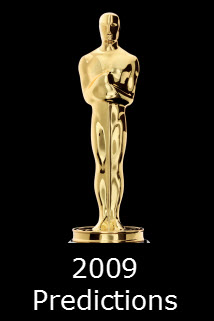The Messenger (2009)


Content by Tony Macklin. Originally published on January 24, 2010 @ tonymacklin.net.
The Messenger is a film about shock and healing. Forget awe.
In a world that avoids the realities of war [the U.S. government didn't allow photographs of coffins], The Messenger casts a flickering light on some of the human cost of war.
Fortunately The Messenger is not dogmatic; it is a human tale with human characters and human reactions.
The Messenger is the story of two members of the Army's Casualty Notification Service whose charge it is to inform a family member whenever there is the death of a loved one in the military.
The notification -- in person but not personal -- brings forth a myriad of different reactions, from fury to repression to collapse. Despite their calculated remote delivery, how can the military informants stay unaffected?
The Messenger focuses on three main characters -- they are the two Army notification officers and a widow of a slain soldier. All are conflicted; all have to cope with psychological wounding.
Staff Sergeant Will Montgomery (Ben Foster) is assigned to join Captain Tony Stone (Woody Harrelson) on the Army's Notification detail. Still recovering from devastating injuries in Iraq -- both physical and psychological -- the unsettled Will is serving out the end of his active service.
The movie begins with a shot of Will with artificial tears in his damaged eye. It's a telling symbol of things to come.
Stone takes Will under his rigid wing. He gives him instruction about keeping distance from the bereaved. Just deliver the prepared statement and make no contact -- physical or emotional -- with the recipient of the awful news.
Captain Stone has sealed himself off from any emotional connection. He delivers each notification each time with the same words in the same monotone. He seems composed and unflappable.
But it appears his service may have taken its toll. Stone is a recovering alcoholic whose recovery is sporadic. He has been married three times, but now he lives alone. He is an uncommitted womanizer.
He and Will live in a world where beepers alert them to the latest casualty, and Stone then uses succinct, pat jargon such as "NOK," instead of "next of kin." It is a world that is rote and mechanical. Stone is reflexive not reflective.
But Will is not as set in his ways. He's still trying to cope with battlefield experiences and the fact that his former girlfriend is about to marry someone else. He punches the wall and plays loud music, but he's mostly quiet. And he's still open to experience.
Despite his mentor's adamant advice, Will makes emotional contact with some of the victims of their dire news. He becomes involved with a widow (Samantha Morton), whom he informs of her husband's death. Her reaction is surprisingly calm, but there's complexity behind it. She has a young son and diverse memories.
As the relationships evolve, the two soldiers face their demons.
Ben Foster is credible and low-key as the tattooed, emotionally-scarred Will. Foster played the vicious, brutal killer in 3:10 to Yuma (2007). In The Messenger he shows a much different sensibility as the sensitive Will.
Edward Norton or Ryan Gosling might have played Foster's role in the past. Foster is their equal.
Woody Harrelson -- mustachioed, gum-chewing, or working a toothpick -- is excellent as the cocky, authoritative Stone. He reveals the human being struggling to stay under Stone's uniform.
Samantha Morton is warm and affecting as the conflicted widow. Steve Buscemi gives a powerful, raw performance as father of one of the dead.
Oren Moverman, in his first feature film -- which he wrote with Alessandro Camon -- creates a memorable experience of humans trying to cope with suffering.
An officer says to the reluctant Will, "This job's about character."
So is the film.



